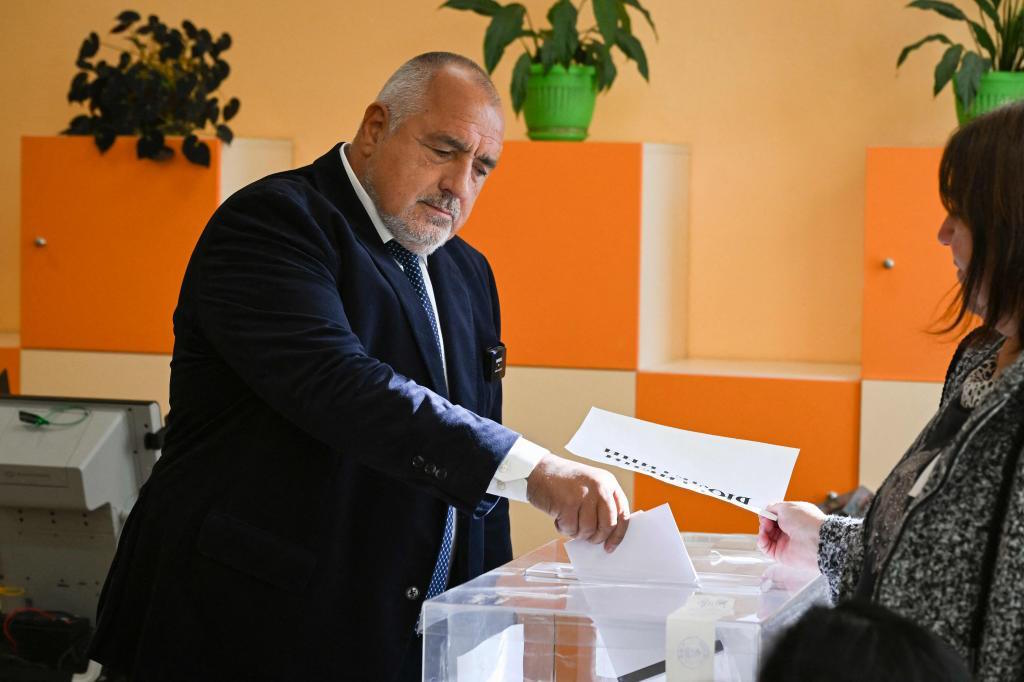Former Prime Minister Boïko Borísov has once again secured victory after the first partial results of the general elections on Sunday in Bulgaria were published, the seventh since 2021. These results confirm the victory of the populist conservative party GERB, which will, however, have a very tough time forming a government coalition, reports Efe.
After counting 82% of the votes, the party of former Prime Minister Boiko Borisov obtained 26% of the votes, as reported on Monday by the Central Electoral Commission. It is followed by the reformist and pro-European coalition PP-BD, with 14.7%, and the ultranationalist and pro-Russian party "Resurrection," with 13.8%.
In total, nine parties entered the Parliament out of 240 seats, as five other parties surpassed the required 4% threshold.
Following the top three parties were the DPS New Generation party, with around 9-10% of the votes, according to Trend and Gallup, ahead of the Alliance for Rights and Freedoms, with 8-9%.
These two parties were created a few weeks ago amid a division within the traditional DPS party, whose strongmen, Delyan Peevski and Ahmed Dogan, two businessmen with questionable reputations, engaged in a power struggle.
Next in line were the traditional socialist party (former communist) BSP, with 8%, ahead of the protest party ITN, with between 6 and 7%, and the new populist party MECH (Sword in Bulgarian), with just over 4%, and possibly also the pro-Russian party Grandeur, also with 4%.
With so many parties in the Chamber, Borisov will have a very difficult time forming a coalition involving three or four parties to surpass the 121 seats needed for a majority.
The issue is that most parties are at odds with each other due to personal enmities and ideological differences, whether in favor or against Russia, in favor or against intensifying the fight against corruption, or in favor or against further integration into the EU.
The voter turnout was 34%, slightly higher than experts' estimates before the elections.
Borisov insisted after learning the initial estimates that he wants to form a government coalition and will negotiate with all parties willing to follow GERB's program, "with the exception of Resurrection, as European political families do not allow it."
In any case, the conservative populist, accused by his critics of corruption and nepotism, expressed confidence that this time he will succeed in creating a Government to lead Bulgaria into the eurozone, a step planned for next year.
PP-BD emphasized its demand for the creation of a Government led by a neutral prime minister, following the model of Mario Draghi in Italy a few years ago, committed to an anti-corruption program, something that Borisov rejected today, stating that it "would ignore the voters' wishes."
"First, we will have to ask GERB what they will do as the winners of these elections. They have the responsibility," said one of the alliance leaders, former Prime Minister and academic Nikolay Denkov.
The Balkan country, the poorest in the European Union (EU) and considered the most corrupt, has been in an almost permanent political crisis since 2021.
Since then, no government has lasted more than nine months, and the elections this Sunday were the seventh held since April 2021.
Six of these elections were won by GERB and its leader Borisov, who, however, has not been able to become prime minister since 2021 due to the inability to form a viable coalition.
Borisov, a former bodyguard and former mayor of Sofia, served as Bulgaria's Prime Minister three times between 2009 and 2021.
